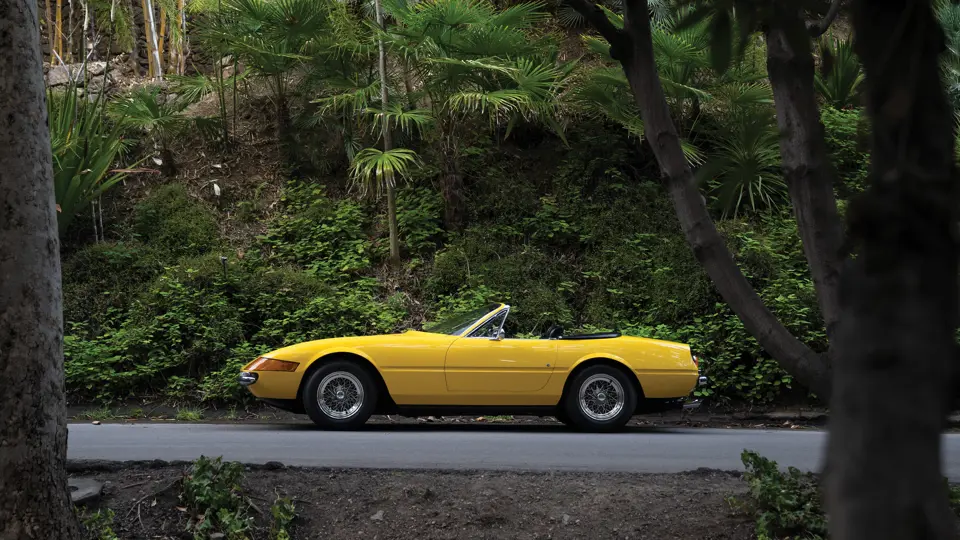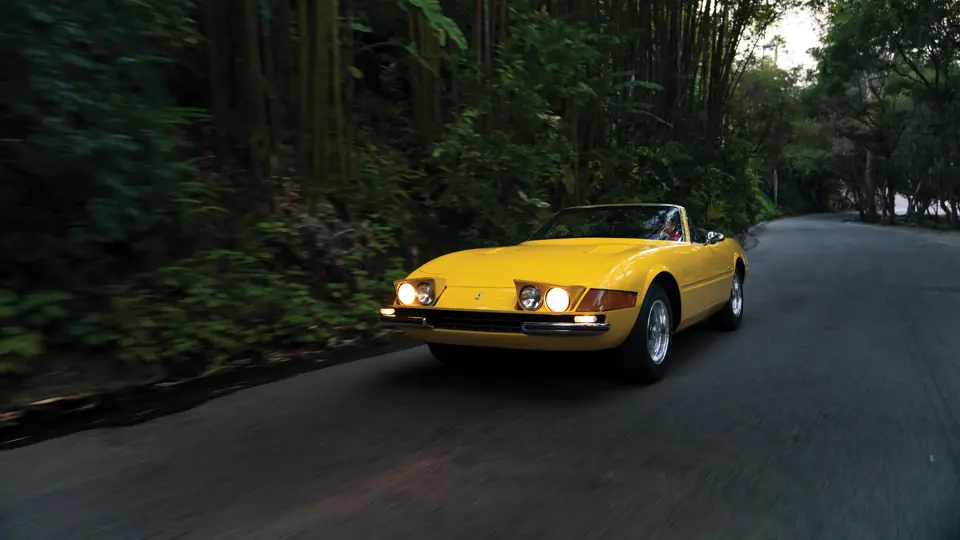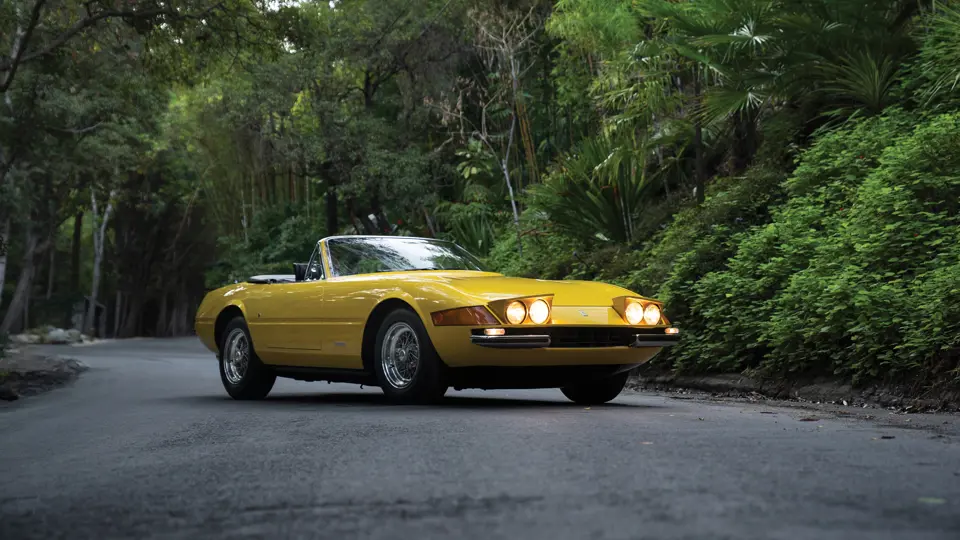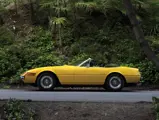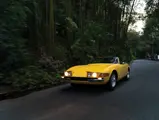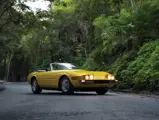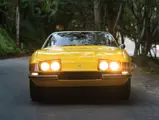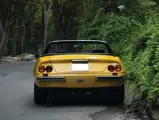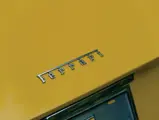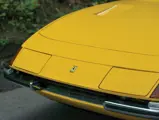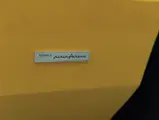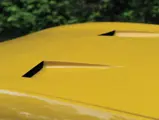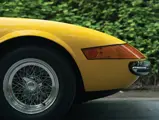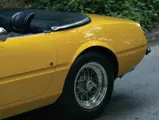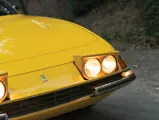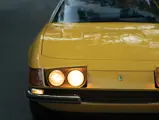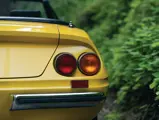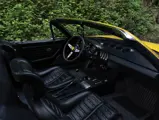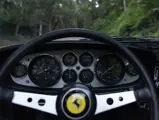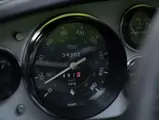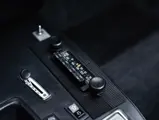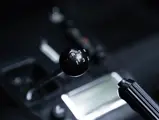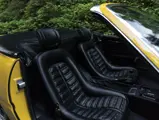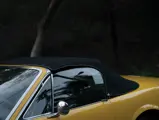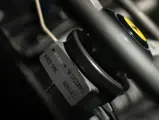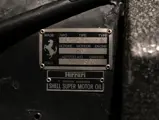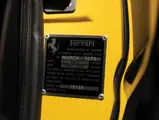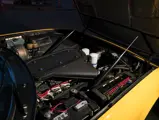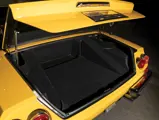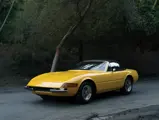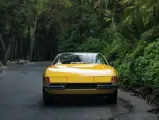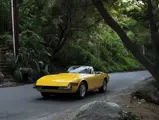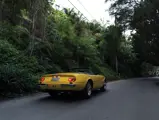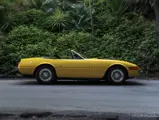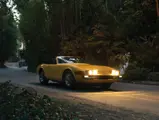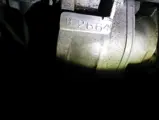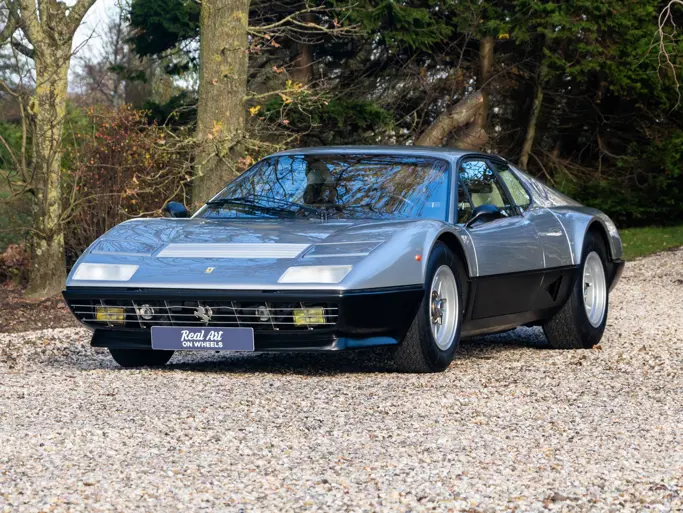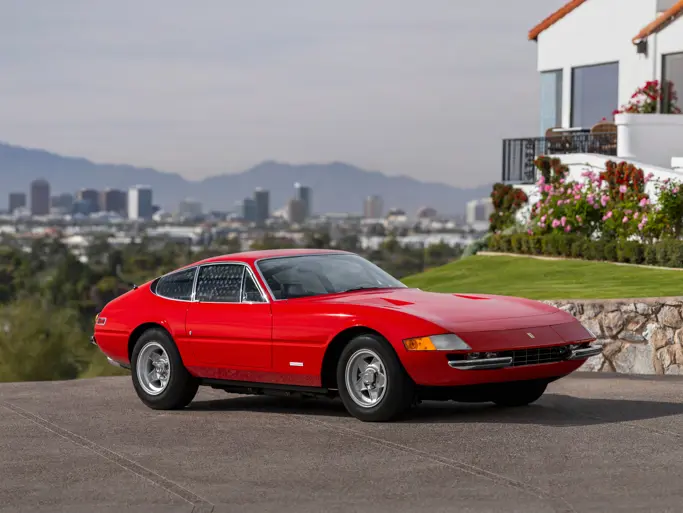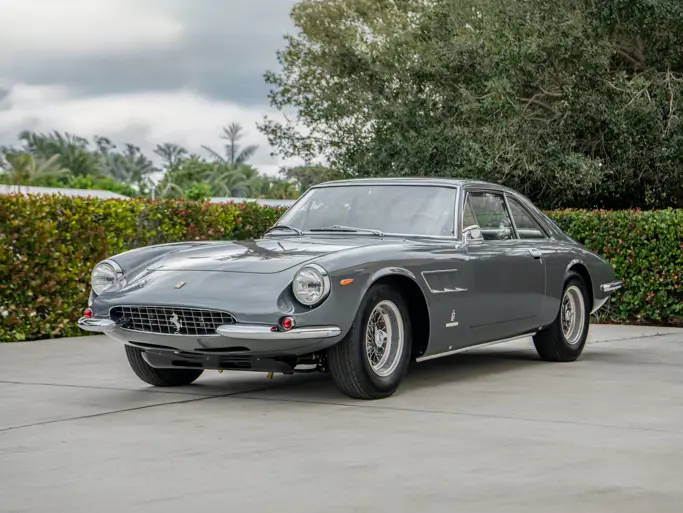
1973 Ferrari 365 GTS/4 Daytona Spider by Scaglietti
{{lr.item.text}}
$2,200,000 - $2,600,000 USD | Not Sold
{{bidding.lot.reserveStatusFormatted}}
- Ferrari Classiche certified; retains its original engine and gearbox
- The 90th of only 121 examples built
- Restored in its original color combination by a marque expert
- Odometer currently displaying less than 34,500 miles
- Documented by marque historian Marcel Massini
- Striking example of Maranello’s iconic front-engine V-12 spider
Without a doubt, the 365 GTS/4 spider holds a unique cachet among Ferrari’s vintage front-engine V-12 roadsters, combining rarity and beautiful design with an important perch in the manufacturer’s engineering genealogy.
Ferrari announced the 365 GTB/4 berlinetta in 1968, introducing Leonardo Fioravanti’s famed shark-nose design in a stop-gap effort while the forthcoming rear-engine flat-12 remained a work in progress. That the model was nicknamed “Daytona” in honor of the company’s dominating 1-2-3 finish at the 1967 24 Hours of Daytona has become a point of legend, even if the name was not officially sanctioned by Enzo Ferrari.
But the Daytona, the marque’s first 4.3-liter dual-overhead cam road car, took on a particularly handsome visage when the top was removed. The striking GTS/4 spider was introduced at the 1969 Frankfurt Salon. Endowed with a purity of line and stance, the new spider’s collectability was instantly assured when only 121 examples were produced. As the final front-engine open Ferrari to feature a derivation of Giaocchino Colombo’s classic short-block V-12, the Daytona spider was the ultimate evolution of 20 years of development, the final hereditary successor of an entire generation of vintage Ferraris.
Chassis no. 16839 is the 90th of those few 121 spiders built, and the 65th example of 96 cars specified for retail in the U.S. Equipped with air conditioning, a Becker radio, and instruments in miles, as well as American-specification safety and emissions components, the Daytona was finished in Giallo Fly and upholstered in Nero vaumol leather. The car is believed to be one of just 16 examples sold in the U.S. to feature the striking combination.
The Ferrari completed factory assembly in March 1973 and was distributed to William Harrah’s Modern Classic Motors in Reno, Nevada. Purchased new by James Nute of Dearborn, Michigan, the Daytona was presented in May 1974 at the 12th Annual FCA Meet held at Stone Mountain Park, Georgia. In 1976 the car was sold to Atlanta-based dealer Jim Southard, and from there it passed to two more dealers before being purchased in 1978 by Fred Johl, a German living in California. His brother, Armin Johl, was a marque collector better known for a successful leather manufacturing business.
Fred Johl registered the Ferrari with California tags bearing his nickname, “ITZER,” but imported the car to Germany, where it participated in the Ferrari Owners Club meet at the Nürburgring in June 1980, and the AvD-Oldtimer-Grand Prix at the Nürburgring in August 1982. In 1986 the spider was acquired by Kay Bradford of Villanova, Pennsylvania, and he retained possession for three years before selling the car to Gerald Bowes of Philadelphia, at which point the odometer displayed 29,132 miles. Mr. Bowes presented the Daytona in June 1990 at the Sixth Annual Reading Concours d’Elegance at Reading, Pennsylvania, winning a class award, and kept the car for three more years before selling.
Gary Schaevitz of Katonah, New York, then bought the Daytona in 1993, and two years later it passed to Dean Becker, the owner of an eponymous beeper company. Chassis 16839 was briefly owned by at least one more American owner before being purchased in April 1999 by the world-renowned collector Sir Anthony Bamford of Stoke-on-Trent, England, and he commissioned the esteemed marque expert Terry Hoyle to conduct a full cosmetic restoration that included repainting and reupholstering the car in its original factory color scheme. The opportunity was also taken to convert the coachwork and safety equipment to European specifications, which included modifying the lamps, removing the emissions components, and adjusting the front and rear bumpers. The air conditioner was also replaced with a correct factory-specification unit.
Though the beautifully restored Daytona remained in the UK for some time, it was purchased in 2001 by Los Angeles Times publisher Otis Chandler for inclusion in his local museum, and then traded to Joel Finn of Connecticut, to whom it was then delivered from England. In 2006, the minimally driven spider was sold to the consignor. During his ownership the car has continued to enjoy a life of modest use and dutiful maintenance as needed while being domiciled in a climate-controlled garage.
In November 2007 the spider was authenticated by Ferrari Classiche (in original U.S. specification) confirming that all major mechanical equipment remains intact and original. The car has experienced almost no significant activity of note over the past 13 years, with the exception of presentation at the Concorso Italiano in Seaside, California, in August 2018. Two months later the Daytona was treated to a thorough inspection and servicing by Ferrari of Beverly Hills, at which time the air, cabin, and oil filters were replaced, and the fluids were flushed and replaced.
Currently displaying approximately 34,302 miles, less than 4,500 miles over the last 26 years, this breathtaking 365 GTS/4 offers an outstanding degree of originality as confirmed by the factory authentication. Daytona Spiders do not frequently become publicly available, and this example is further distinguished by the rare fly giallo on nero combination, which was featured on only 16 U.S.-delivery examples. Currently presented in European specification, the minimally driven Daytona Spider displays outstanding fit and finish, and is ideal for presentation at major concours d’elegance and marque events, a superlative acquisition for any sports car enthusiast.
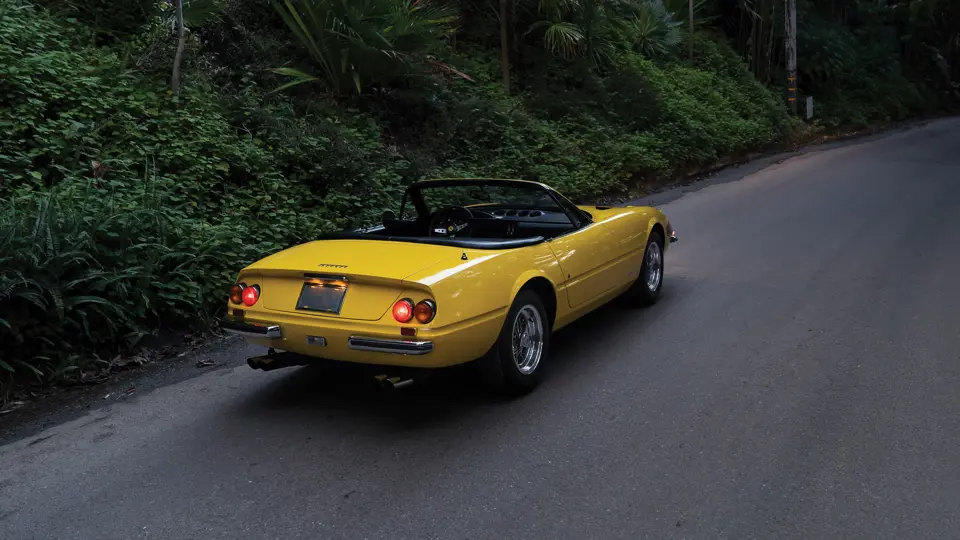
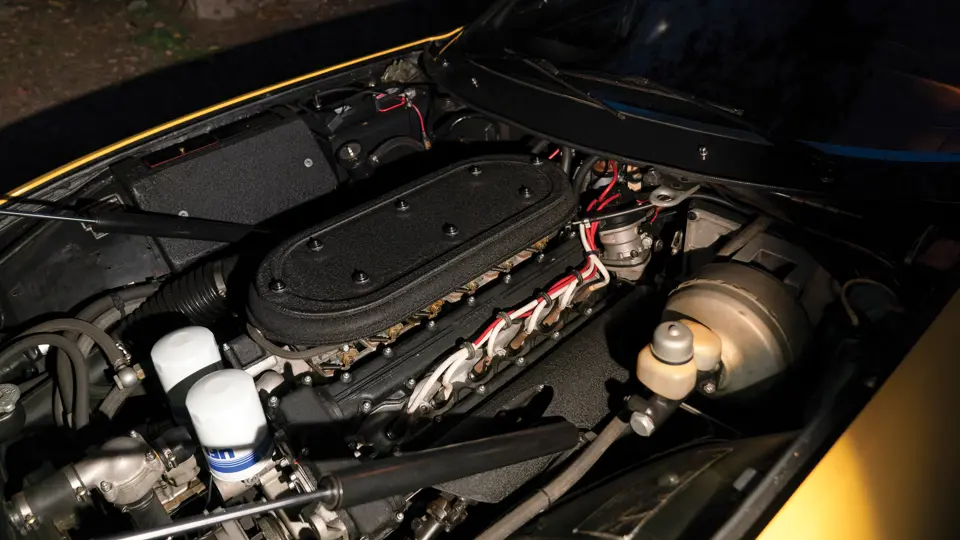


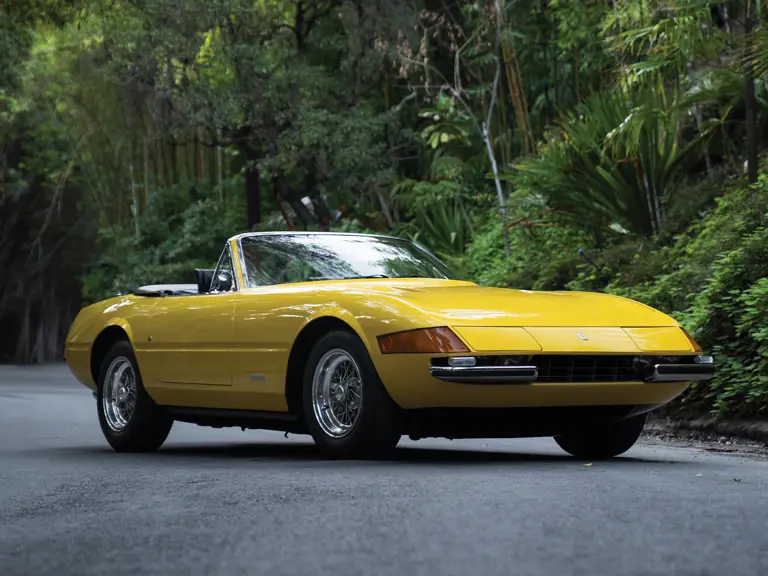
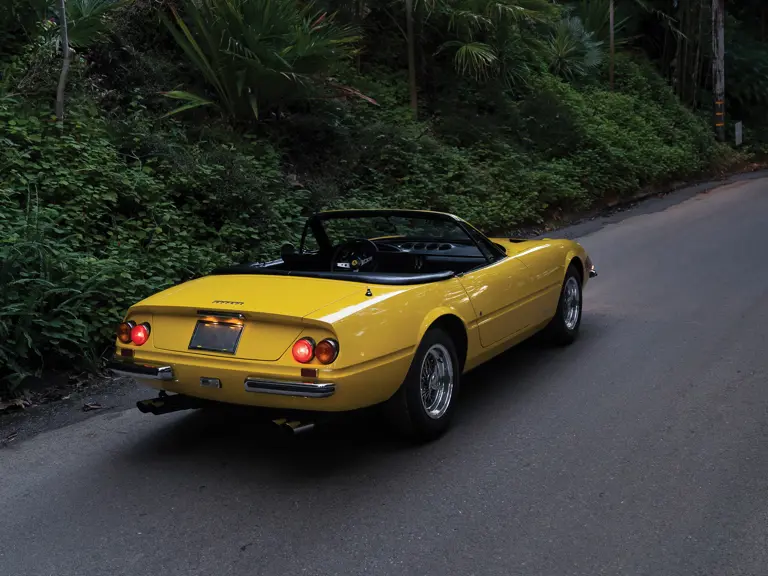
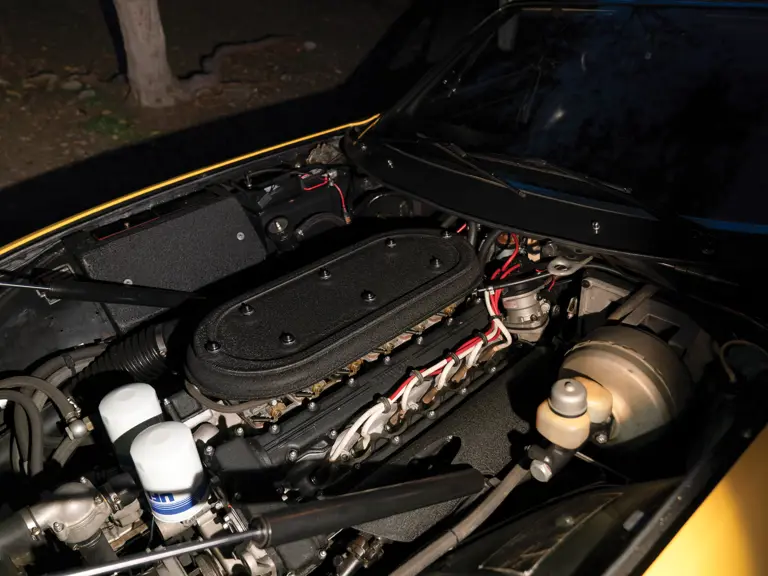
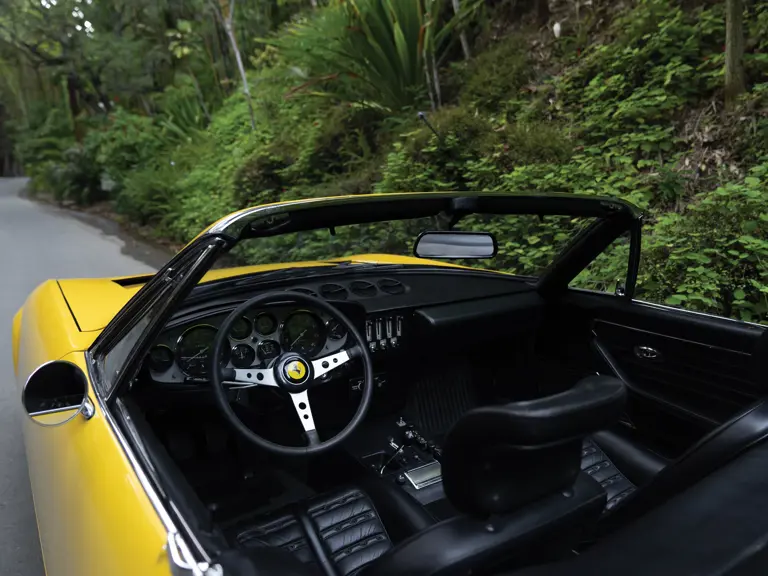

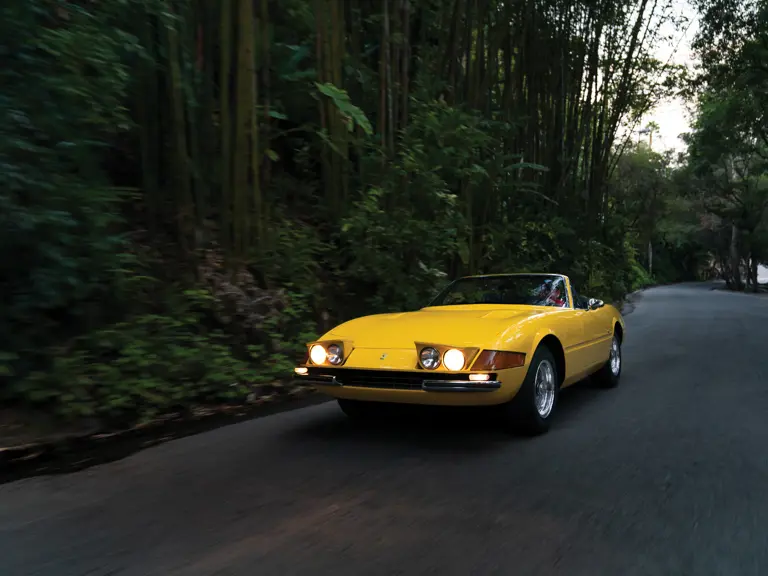
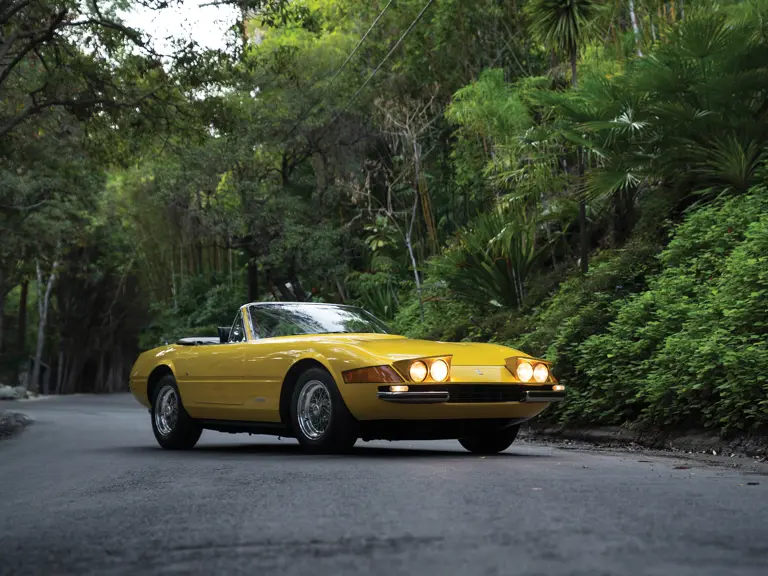
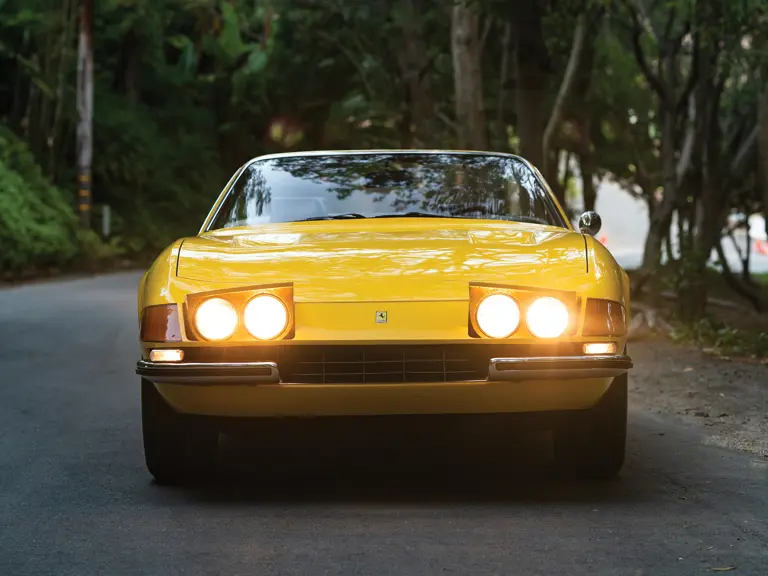
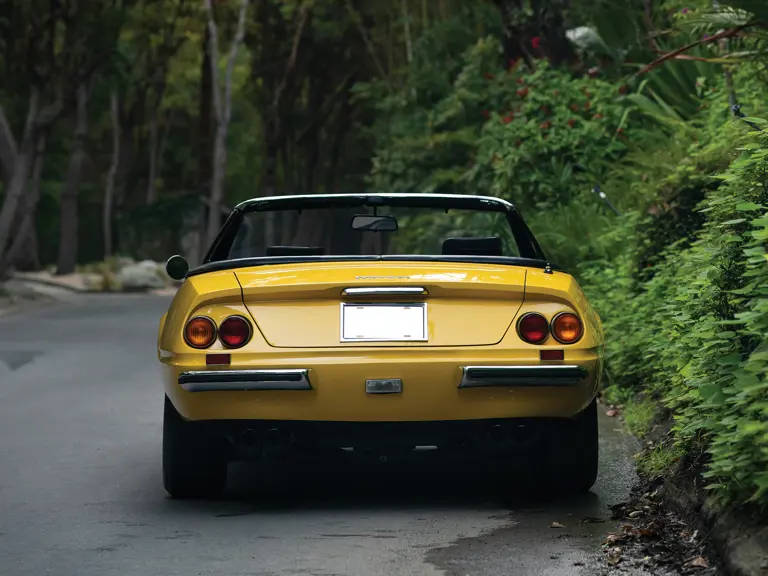
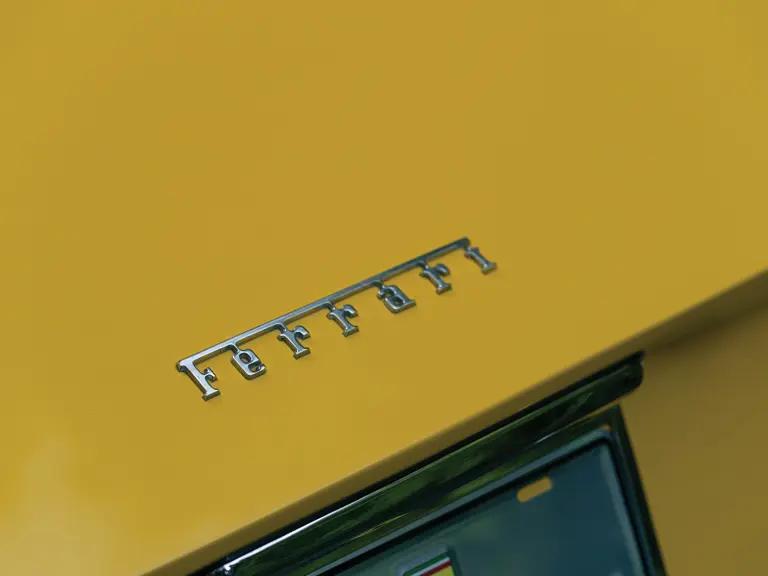
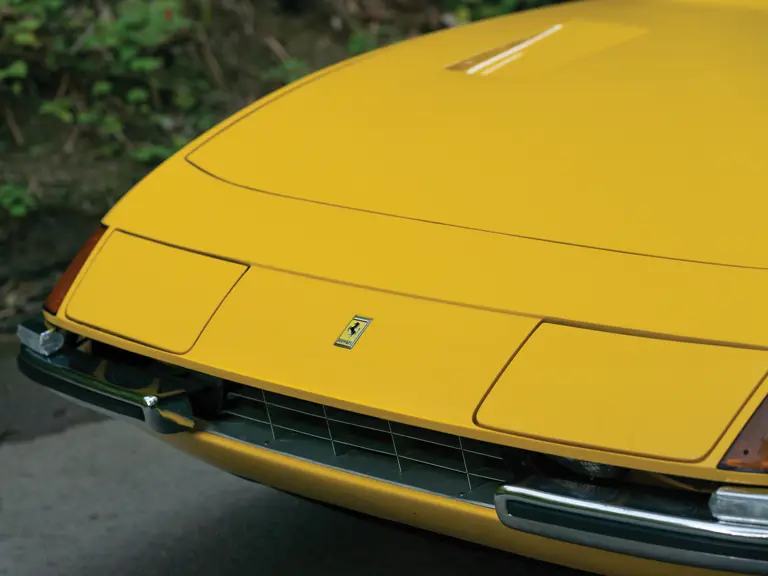
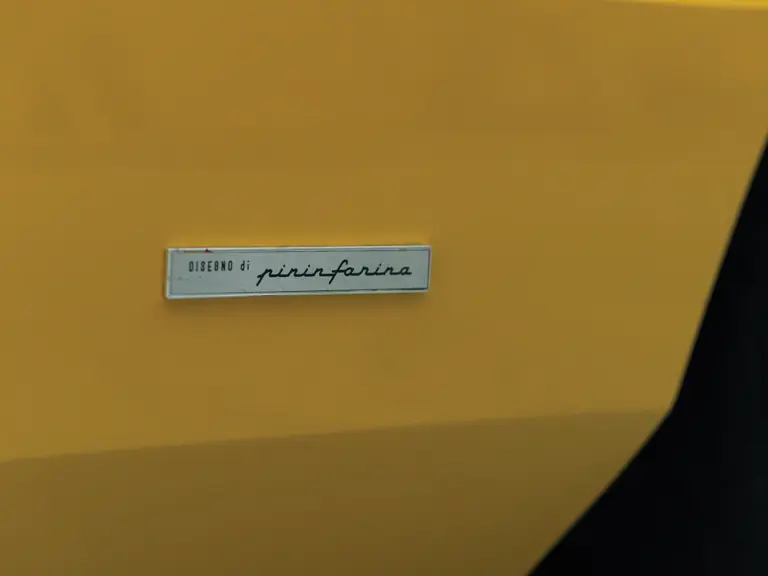
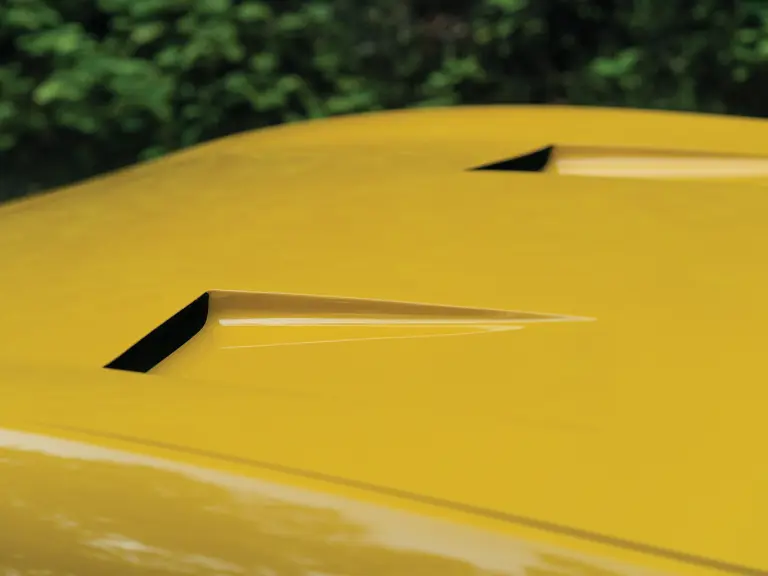
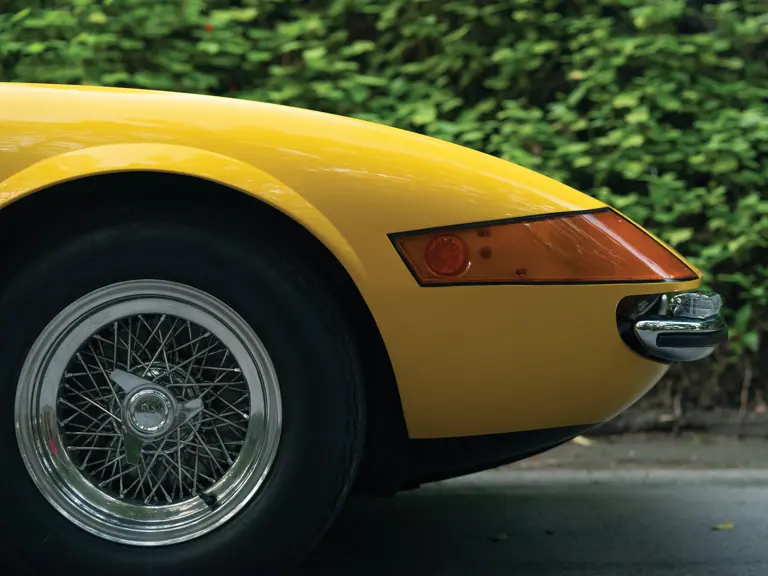
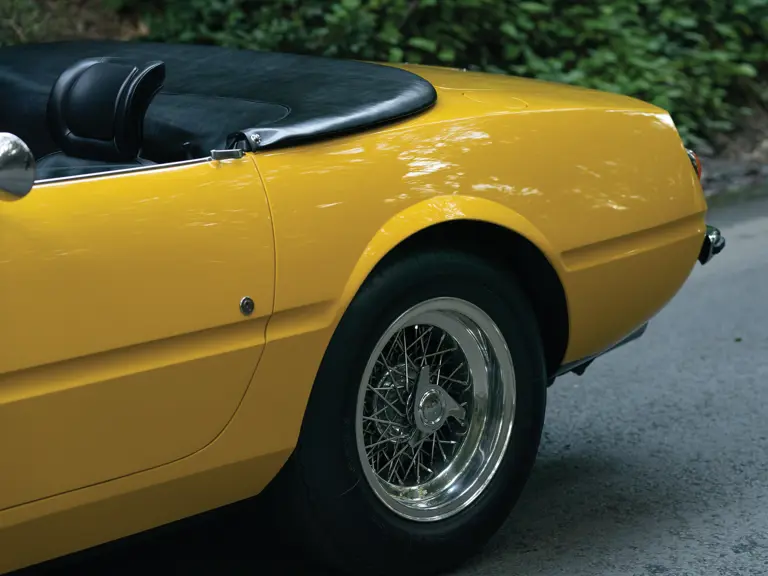
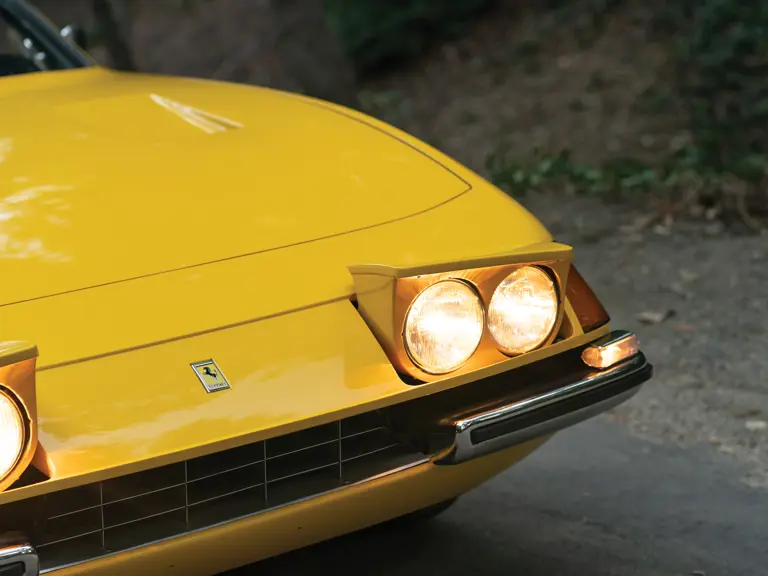
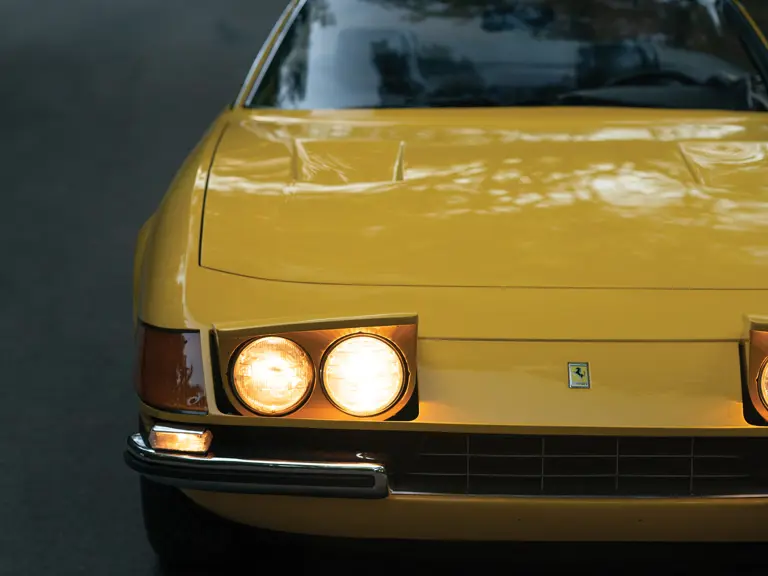
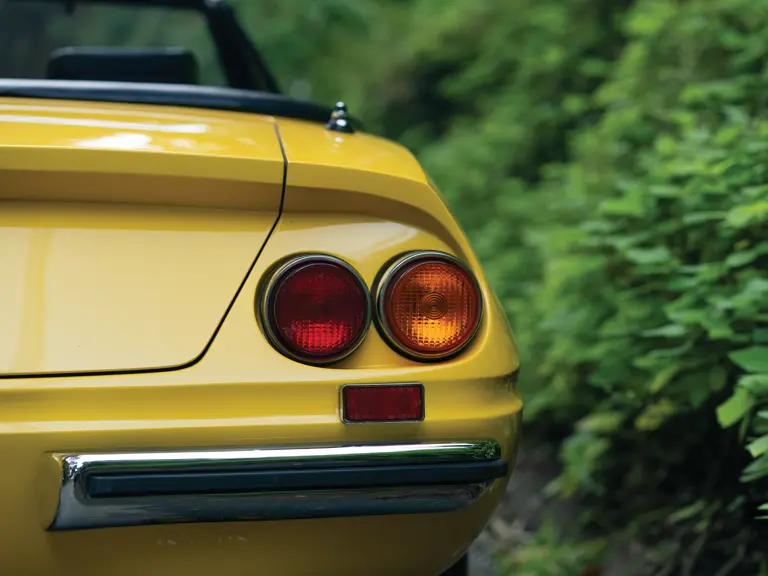
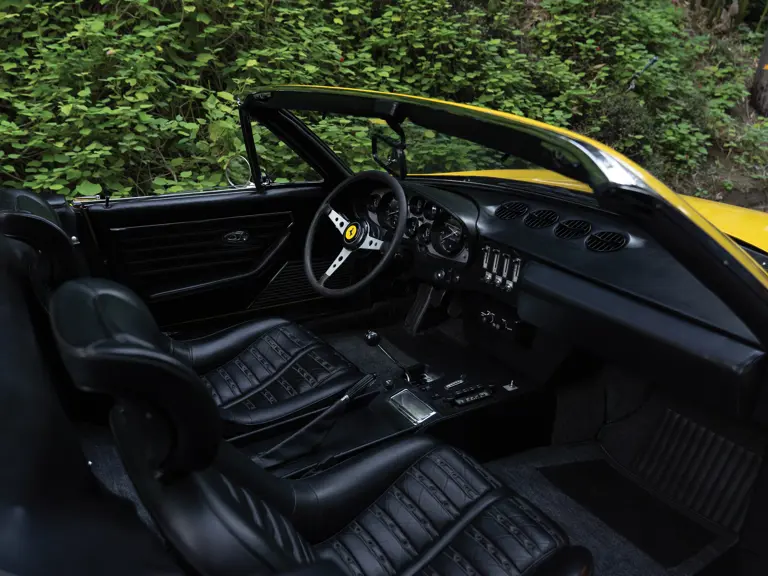
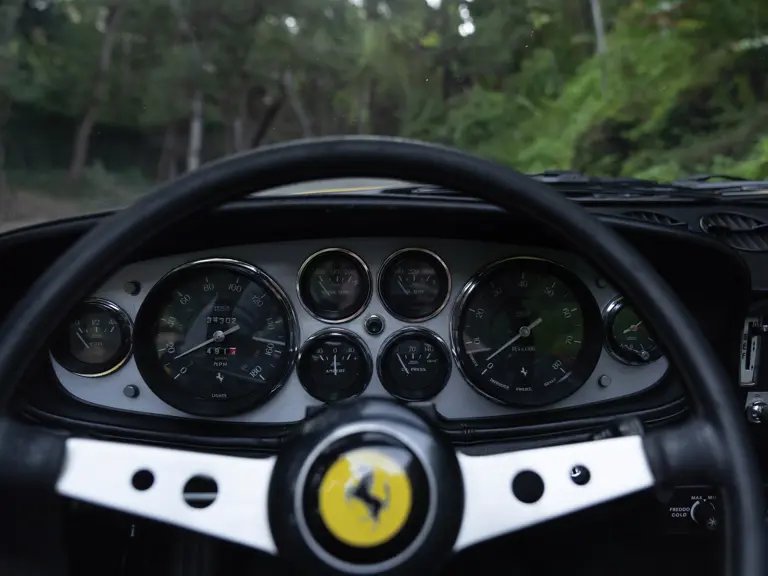
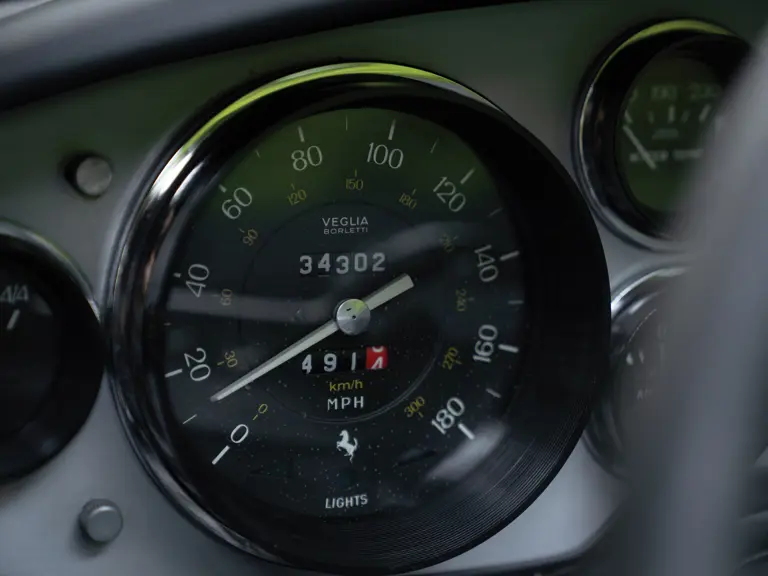
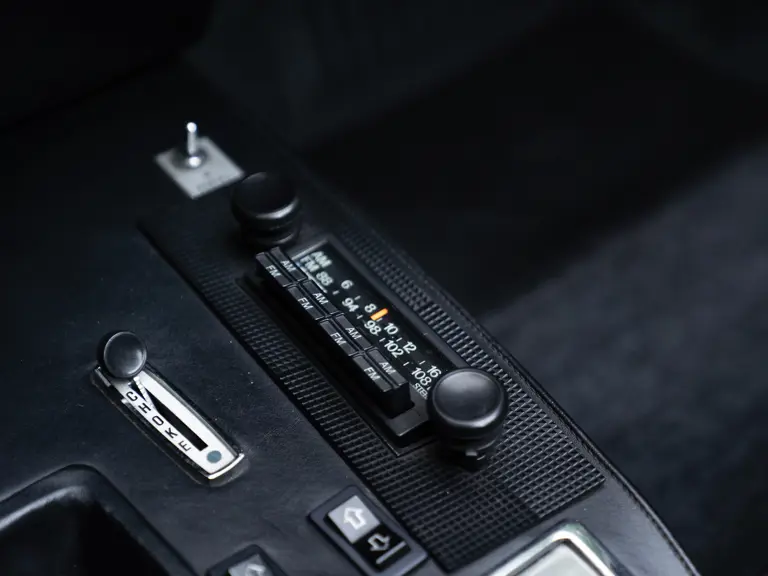
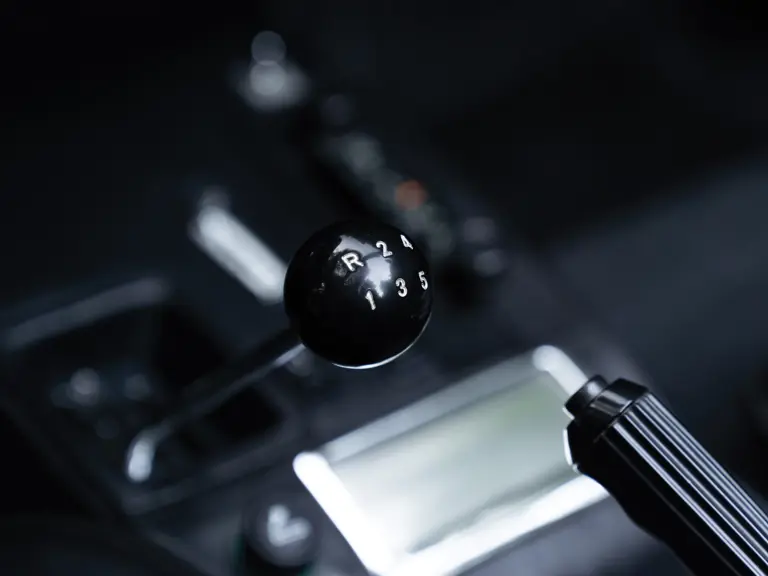
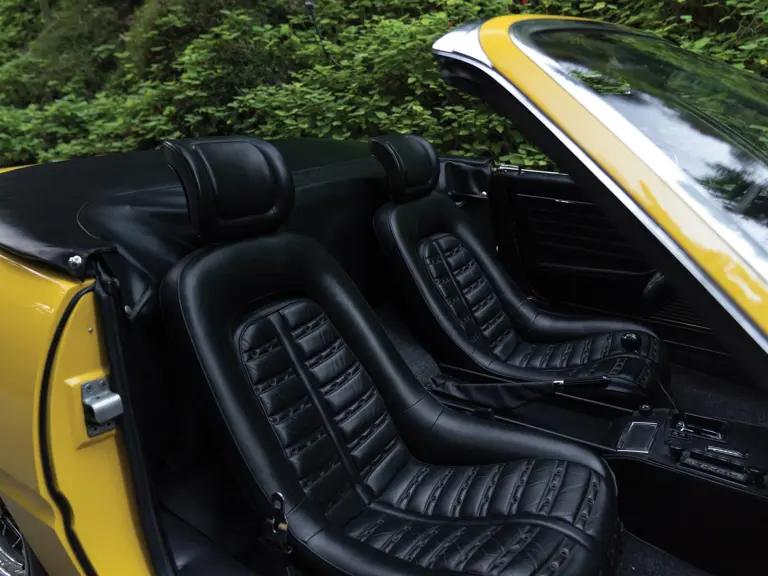
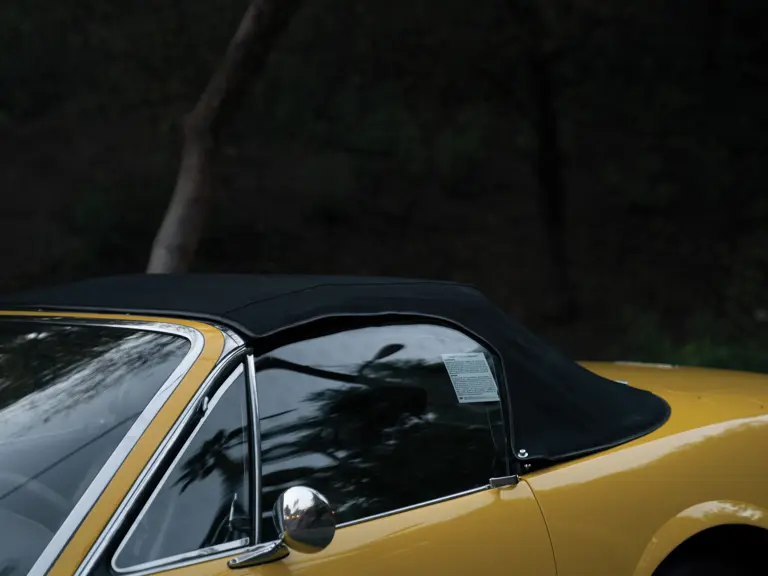
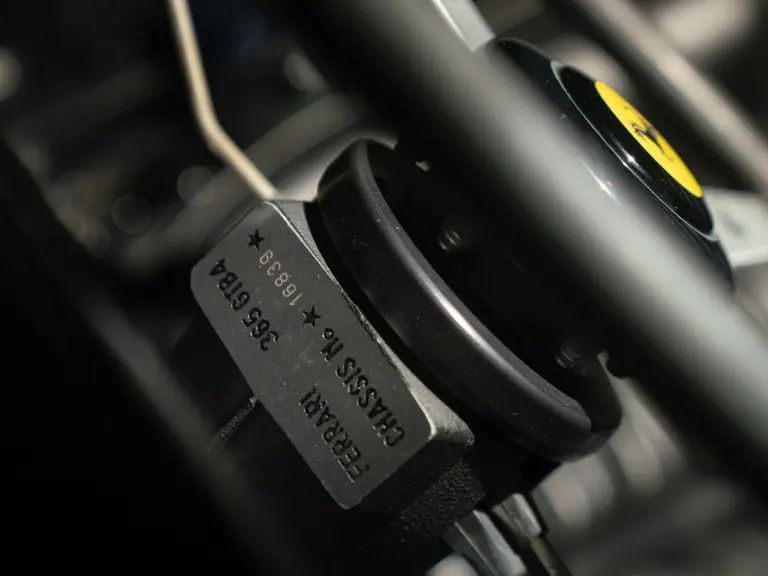
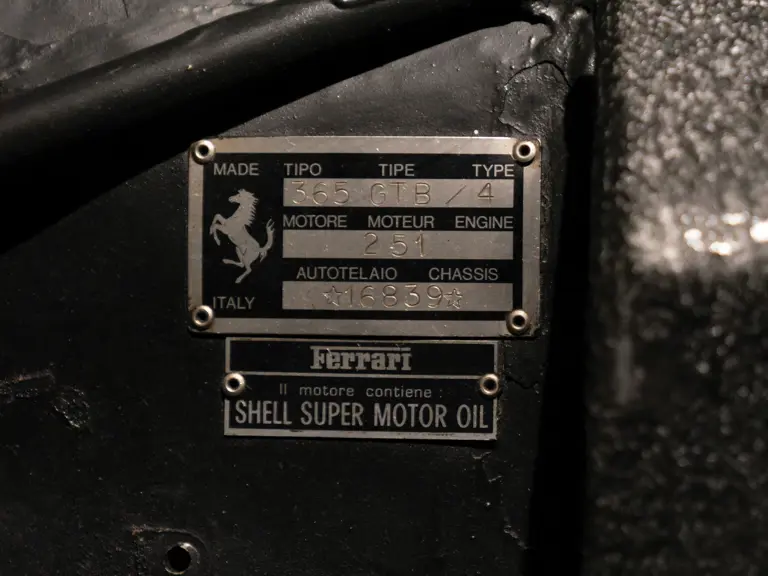
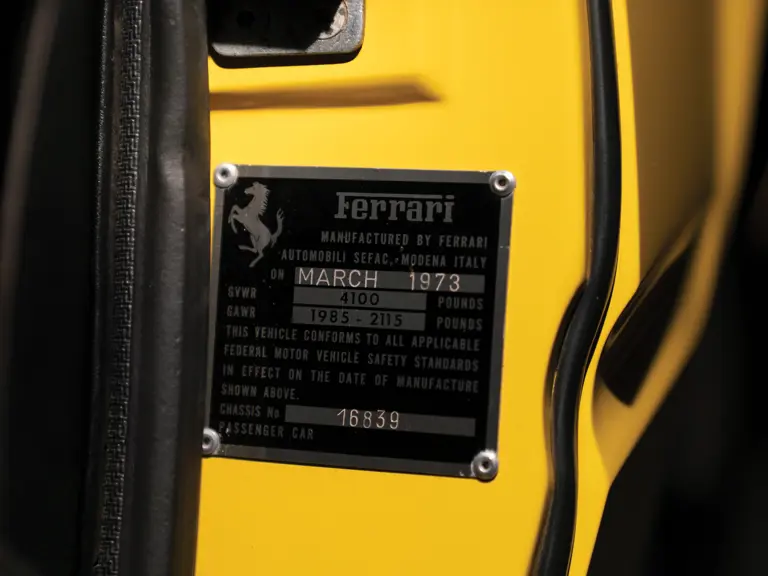
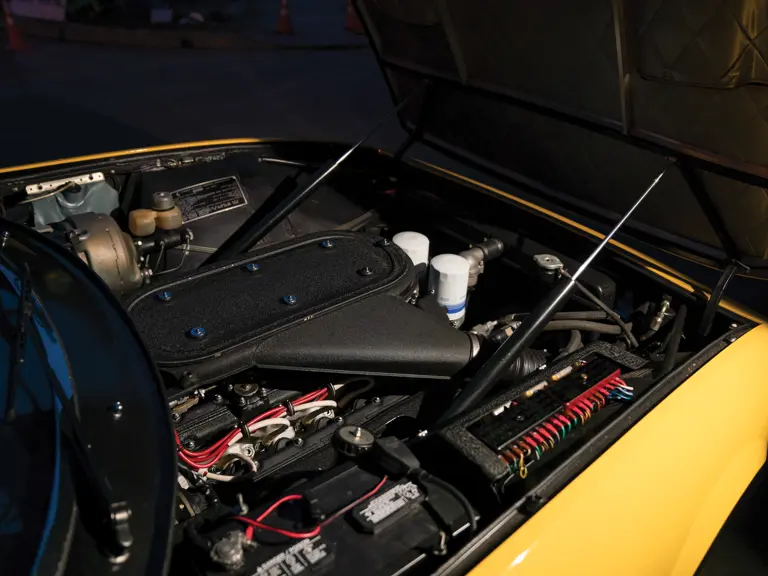
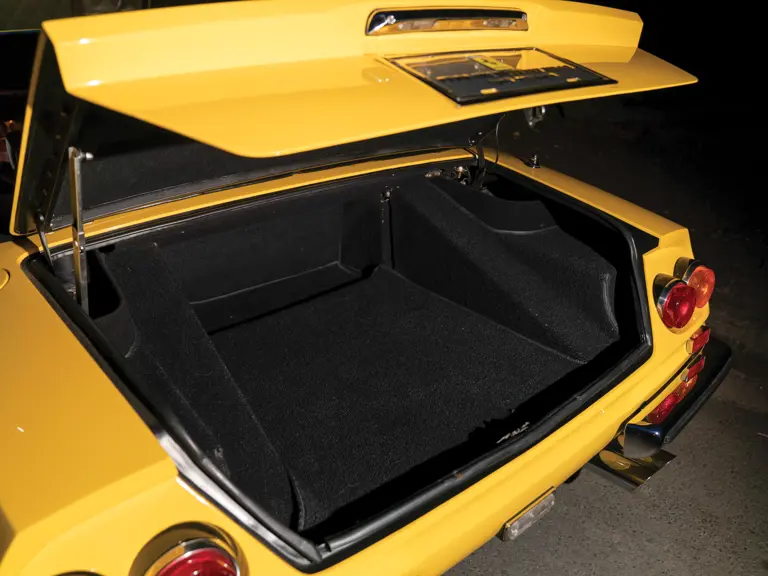
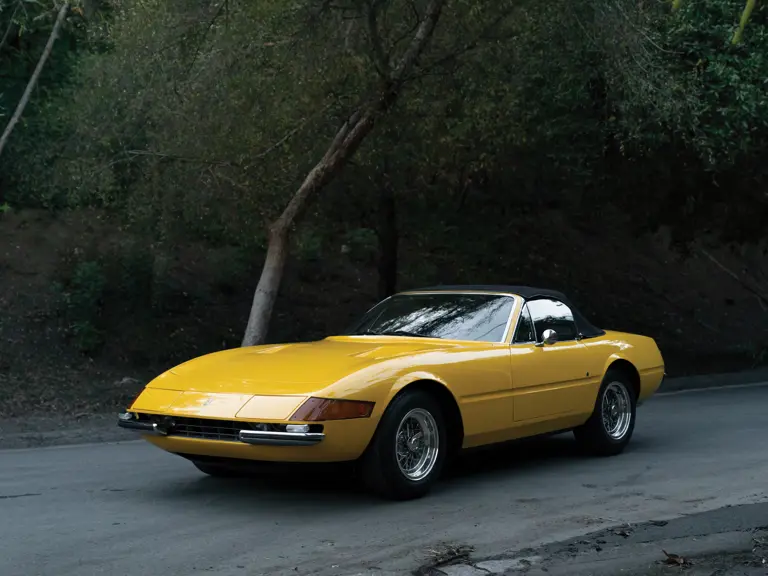
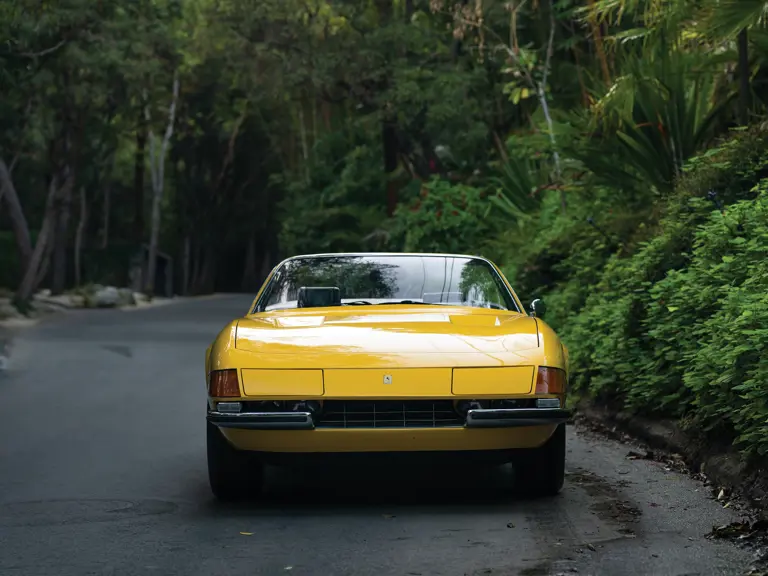
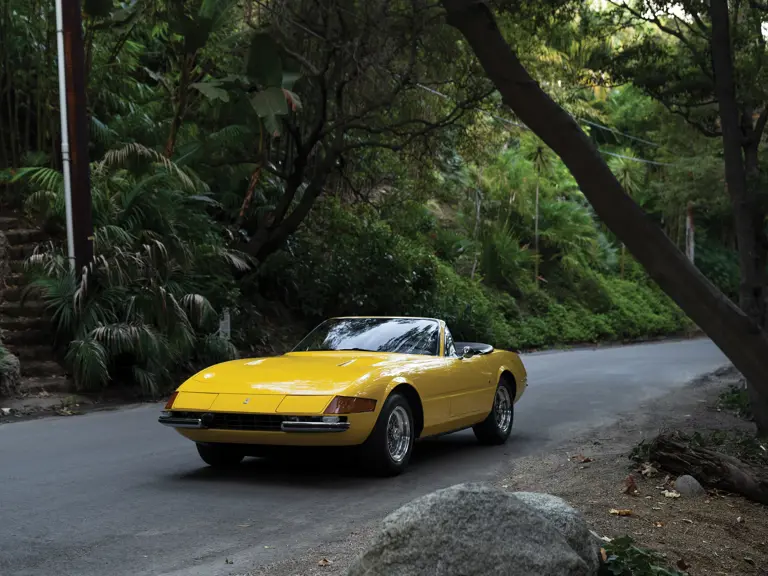
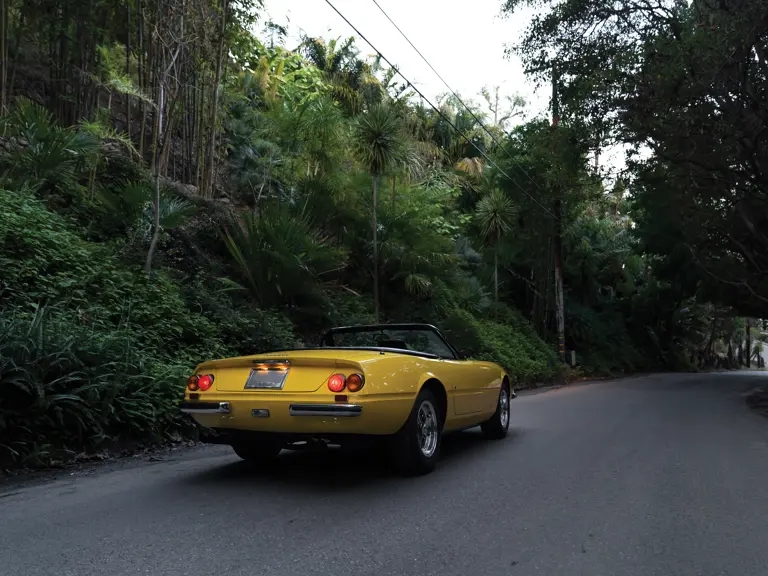
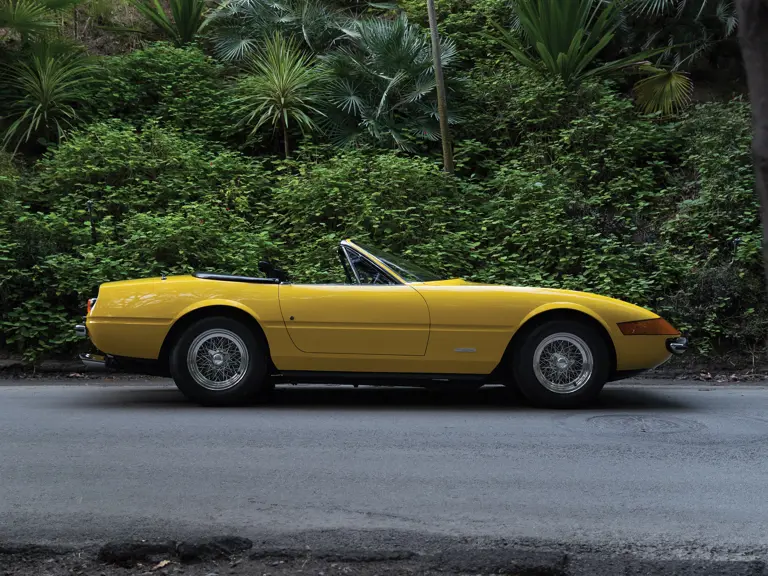
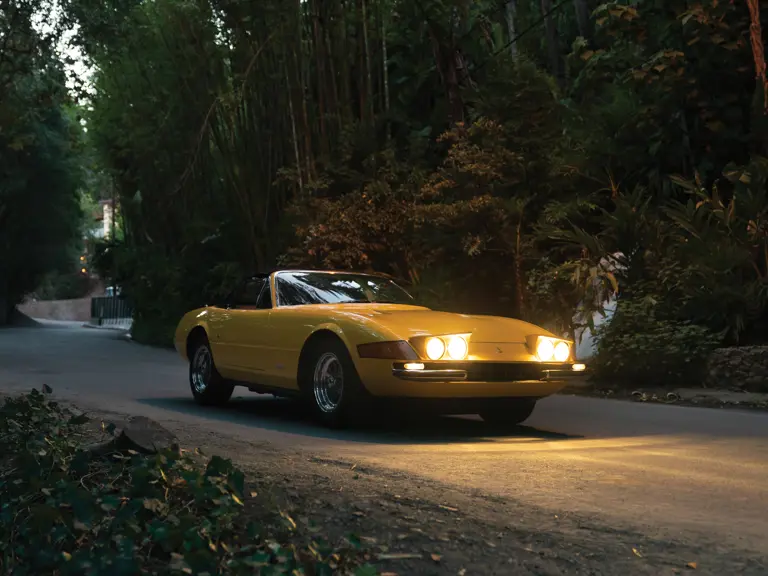
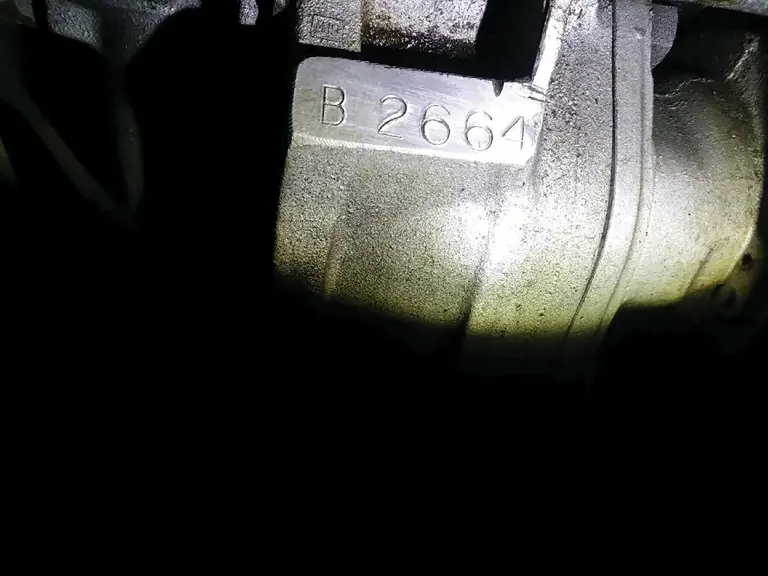
 | Phoenix, Arizona
| Phoenix, Arizona
